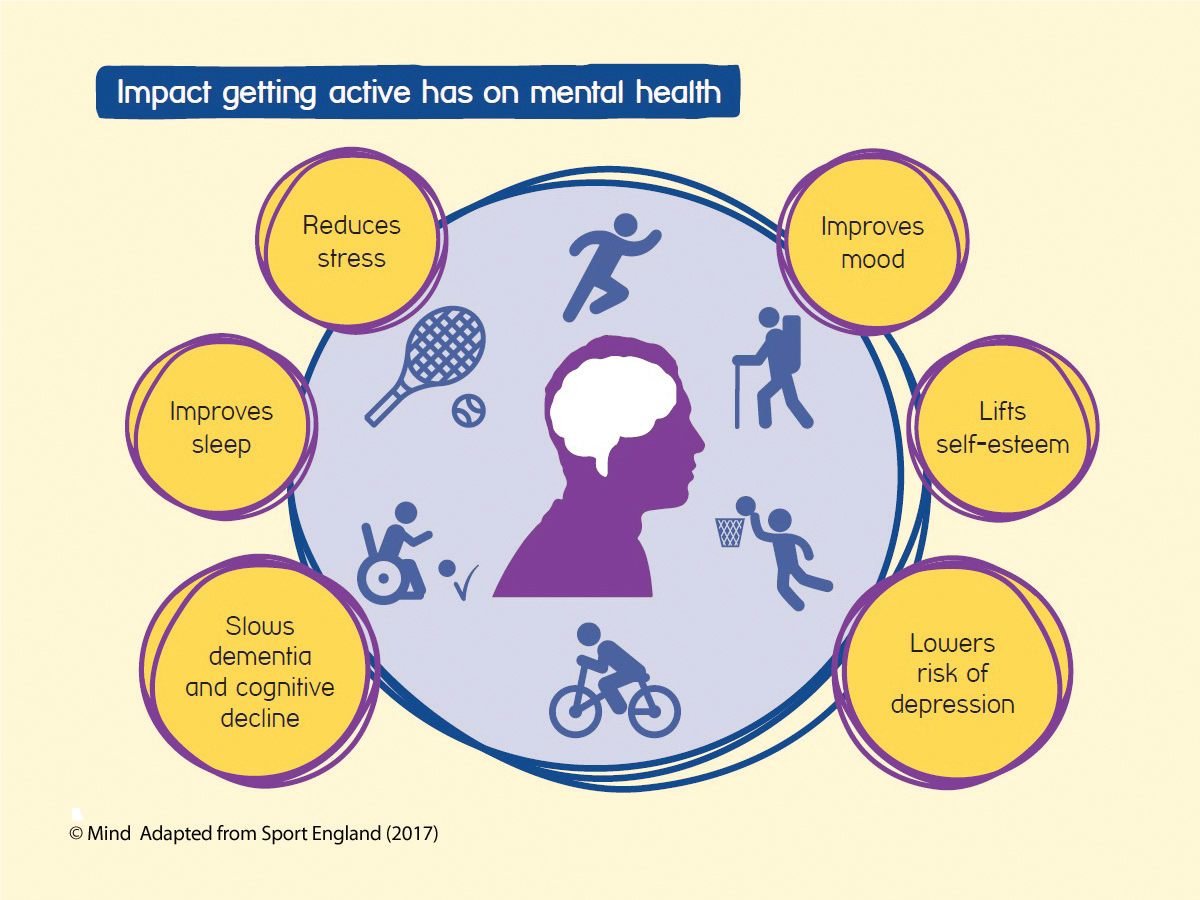Introduction
Mental health has been ever important in the fast paced world of today. The challenges of daily life are never a walk in the park and many have clamoured for new ways to keep their mental health centred. Sport is an under utilized, yet powerful weapon in the weapons cache of mental health. From that morning jog to the weekend soccer game or regular gym session, these activities benefit our mental health as much if not more than they do your physical wellbeing. The ins and outs of how sports can be advantageous for mental health are explained in detail below.
Physical Health Influencing Mental Health
The boost physical activity gives to the brain
Regular physical activity improves cognitive function and increase interesting activities instead of just laying on the couch watching our favorite TV shows. Exercise gives more blood flow to the brain thus combats oxygen in and hormones out. Better circulation translates to better memory, focus and overall cognitive function. It is like good exercise for your Brain, same way you do it with body muscles.
The Role of Endorphins
Exercise releases endorphins; often referred to as the « happy » hormones. Your body releases its own natural painkillers in response, which create that euphoria runners love so much (yes, the elusive “runner’s high”). Endorphins are released with increased exercise, resulting in better mood and reduced levels of stress.
Sport as a Stress Reliever
Exercise and Stress Hormones
Physical activity helps lower our body’s levels of stress hormones (like cortisol). Physical activity prompts the release of endorphins as well. This blend is by far the most soothing soothe better call beckham guitar tab sort of heartbreak trickle Because this combination calms nerves—the sixth to pass It lured her unto heights that all men fancy, Though scorned and isolated By those who are unable. Image on a rough day at work, a simple jog around the block can help to reduce your levels of stress and get you back into perspective.
A Much-Needed Vacation from Reality
They act as a mental balm by providing us into the freedom from our boring daily life. From the focus needed in a game of tennis to the rhythmic back and forth of swimming laps, sports steal your attention away from your worries and anxieties. This mental distraction can be super cleansing — a way to break away from the burdens of daily life for just 90 minutes.
Sports And Build Resilience
A Primer for Dealing With Adversity
There are challenges inherent to sport; losing a game, easing past fatigue, striving for PBs. Some of the challenges help teach resilience, a vital skill in mental health. The ability to get through the highs and lows of sports can help people develop these same skills in other aspects of life, making them better capable to deal with bad times that we all face.
Setting and Achieving Goals
In sports, a player is increasingly focused on achieving personal aims like running for certain km, lifting some particular weight or scoring such points. How to achieve those goals also increases self-confidence as well. It gives us a feeling of achievement and I believe that is necessary for one’s mental health as well. Every time you take a step closer to your fitness goals, it strengthens both your body and mind.
The Social Aspect of Sports
Building Social Connections
Many sports are team-based, fostering a sense of social bonding. Sports, such as joining a local soccer team or taking part in the community run, bring new people together and shape friendships. These social interactions are so important for mental health and give you support networks which I guess in hard times is needed!
Combatting Loneliness
Each piece is its own standalone work of beauty and a digital portrait that announces itself to an anonymous sea. Playing sports is one of the best remedies for loneliness. Belonging to a team or community creates camaraderie, which can directly effect mental health in such that you may not feel isolated and have an overall feeling of belonging.
The Known Antidote to Depression — SPORTS
Depression and Consistent Physical Activity
Various studies have shown regular and moderate exercise to be just as effective in treating mild- or clinical depression, respectively as medication. Exercise causes the release of serotonin which is a neurotransmitter and acts as an anti-depressant. Raising serotonin in response can help with depression and other mood disorders — a side effect-free treatment.
Personal Stories of Triumph
There are countless stories of people who overcame depression due to participating in sports. Whether it be through a change in lifestyle that includes daily training and discipline or the pleasure of going to play, sport gives an objective which can ultimately even save lives. The tales are testament to the positive effect of sport on mental wellbeing.
Kickblocker: Breaking the Barriers for Athlete Participation
Addressing Common Excuses
Sports are good for what ails us; the excellent Sport England campaign famously says so, which is most inarguably true – but how many and who can do sport nowadays? Some common excuses are no time, motivation or anything else. But if they understood that getting involved in sports offers incredible mental health benefits, perhaps it might become easier for those individuals to break down the barriers and get moving. Even something as simple as a 10-minute daily walk can help.
Making sports for everyone
Sports should be for everyone, regardless of age or ability level. Thus, the importance of communities in offering low-cost or free sports programs and safe places to engage physically (intra-community) plus encouragement for inclusivity exists. The community is much healthier when many people have the opportunity to involve themselves in sports.
Conclusion
The interrelationship of sport with mental health is a thing; there is no doubt about this. The benefits are nearly as varied: from boosting brain function, reducing stress and building resilience to facilitating social connections. Regularly participating in sports help us become faster, stronger and fitter; and offers mental benefits as well. Grab a pair of sneakers, that tennis racket or head to the pool — and your mind will be forever grateful.
FAQ Section
1. What role does sport play in mental health?
Endorphins are released and the stress hormones decrease, it serves as a form of social interaction associated with better mood.
2. Does Exercise Work For Depression?
Moderate exercise, real- it turns out does work as effectively over time for mild-moderate depression by raising serotonin in the brain.
3. Which sports are best for mental health?
You can get mental health benefits from any sport you enjoy doing. Cycling is also one of the best exercises to lose belly fat, but perhaps more importantly, if you play on a team in any capacity like soccer or basketball– it has social benefits.
4. How much exercise do i need to get mental health benefits?
Experts describe that in order to achieve the maximum mental health benefits, we should aim for 150 minutes of moderate intensity exercise each week.
5. But what about sports?
Some physical activity is better than none Physical exercise in quantities higher than 10 minutes can drastically improve mental well-being even if you have a low starting level. It is all about discovering what works for you and making it a routine.





Laisser un commentaire